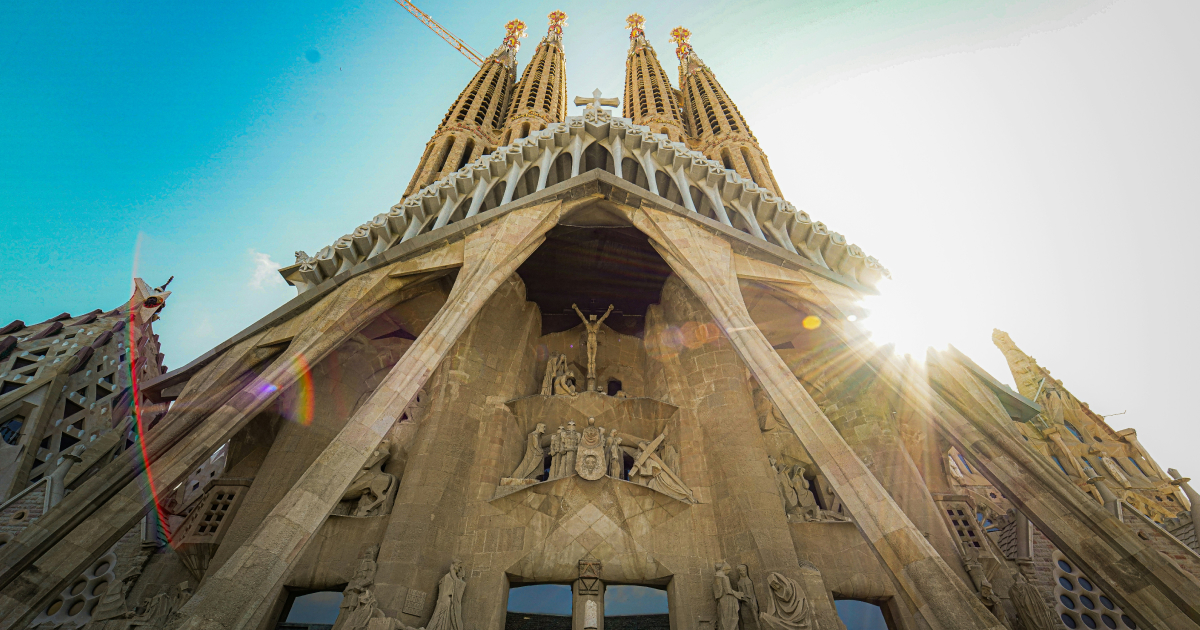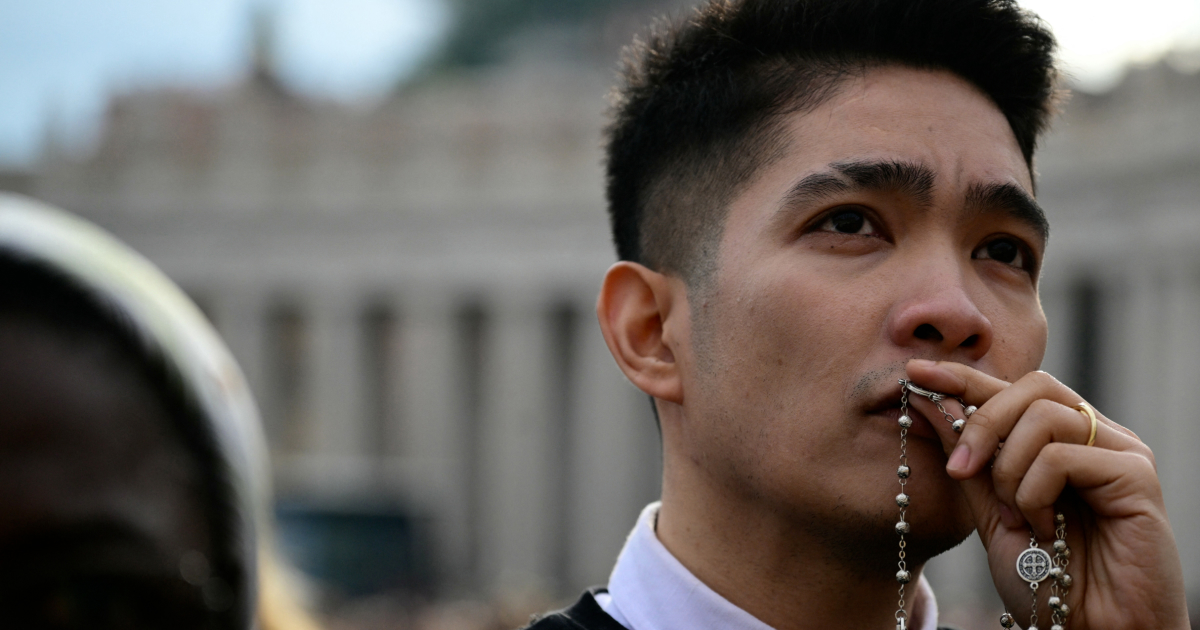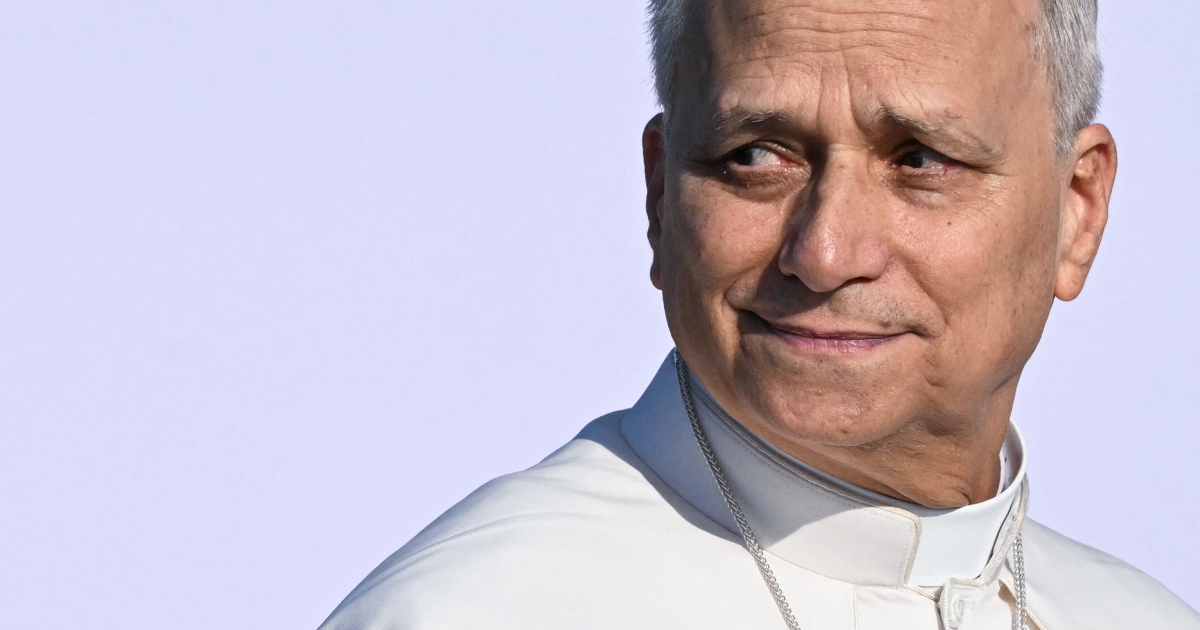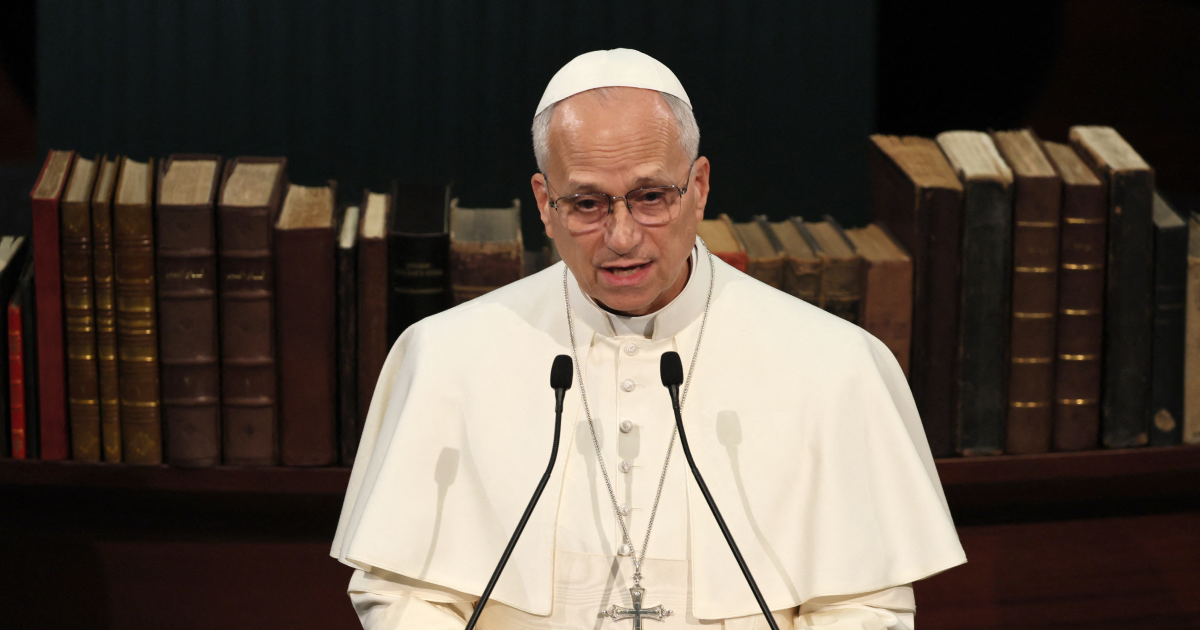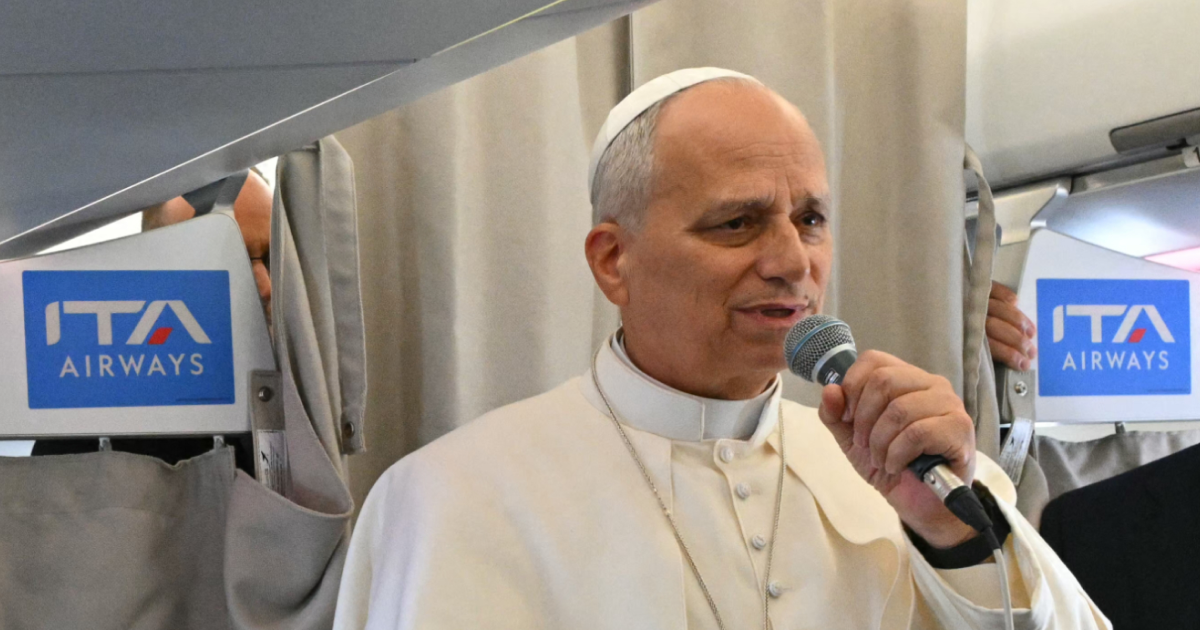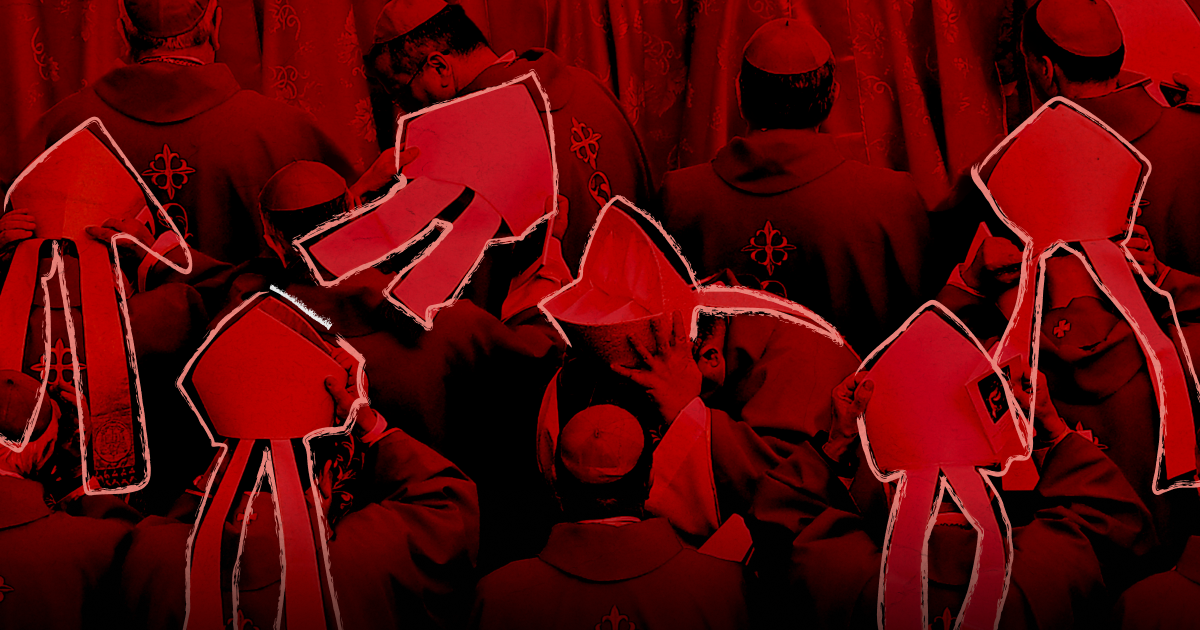Pope Leo has stated that it is “highly unlikely, certainly in the near future” that the Catholic teaching on sexuality and marriage will change.
Speaking to Crux in a recently released interview, Pope Leo XIV answered questions on the issue of LGBT topics – his comments in the July interview being particularly pertinent in light of the LGBT pilgrimage held at the Vatican on 6 September.
Acknowledging that such questions are “polarising” and a “hot-button topic”, Leo sought to downplay any idea that Church teaching was going to change due to the calls of vocal groups.
Leo explained that his understanding of the papacy includes seeking peace in the Church as a key priority, hence:
“For now, because of what I’ve already tried to demonstrate and live out in terms of my understanding of being Pope at this time in history, I’m trying not to continue to polarise or promote polarisation in the Church.”
Pope Francis’s famous comments of todos, todos, todos – “[for] all, all, all” – were often used by LGBT advocates such as Father James Martin to argue for greater LGBT inclusion in the Catholic Church.
Critics responded by citing Catholic teaching to note that people experiencing such issues are not excluded from the Church, but that certain actions promoted by LGBT ideology are always against God’s law.
Leo’s interview comments attempted to find a middle ground between the two positions, using Francis’s phrase but being more specific in its interpretation than his predecessor:
“What I’m trying to say is what Francis said very clearly when he would say, ‘todos, todos, todos’. Everyone’s invited in, but I don’t invite a person in because they are or are not of any specific identity," Pope Leo said.
“I invite a person in because they are a son or daughter of God. You’re all welcome, and let’s get to know one another and respect one another. At some point, when specific questions will come up ... people [then] want the Church doctrine to change, want attitudes to change.
"I think we have to change attitudes before we even think about changing what the Church says about any given question.”
Continuing, Leo poured cold water on hopes some may have had for an overturning of Catholic teaching on LGBT issues, or on marriage and sexuality more generally:
“I find it highly unlikely, certainly in the near future, that the Church’s doctrine, in terms of what the Church teaches about sexuality, what the Church teaches about marriage, [will change].
“I’ve already spoken about marriage, as did Pope Francis when he was Pope, about a family being a man and a woman in solemn commitment, blessed in the sacrament of marriage. But even to say that, I understand some people will take that badly.”
While dismissing any change as “highly unlikely” in the “near future” – and thus appearing open to a change at some later date – Leo subsequently added that, “I think that the Church’s teaching will continue as it is, and that’s what I have to say about that for right now. I think it’s very important.”
The interview was conducted in July, but more recently Leo’s private meeting with Fr. James Martin and the polemical LGBT Jubilee pilgrimage – which saw activists bear controversial images and slogans through the Vatican – has caused great shockwaves through much of the Church.
Cardinal Gerhard Müller and Bishop Athanasius Schneider have both condemned the event, whilst the Holy See Press Office sought to distance blame from Vatican offices.
Schneider lamented how Martin was allowed to meet with Leo and continue his LGBT activism unchecked, which he suggested was a sign of Leo being too permissive.
Following Pope Francis’s December 2023 document Fiducia Supplicans promoting the blessing of same-sex couples, there has been increased debate about Catholic teaching on marriage and sexuality – which comes against the backdrop of an already highly charged debate following Amoris Laetitia’s publication in 2016.
While not naming those papal declarations, Leo condemned the German bishops’ 2023 initiative for same-sex blessing of “people who love one another". Pope Leo – who often met with the German bishops and also jointly issued a warning about their direction while still a Curial official – told Crux:
“In Northern Europe they are already publishing rituals of blessing ‘people who love one another’ – is the way they express it – which goes specifically against the document that Pope Francis approved, Fiducia Supplicans, which basically says, of course we can bless all people, but it doesn’t look for a way of ritualising some kind of blessing because that’s not what the Church teaches.
“That doesn’t mean those people are bad people, but I think it’s very important, again, to understand how to accept others who are different than we are, how to accept people who make choices in their life and to respect them.”
Throughout the conversation, the US-born pontiff sought repeatedly to show the Church as open to all while simultaneously preserving Church teaching: thus his declaration for “gay marriage” activists to be “accepted and received” while noting that “the Church’s teaching will continue as it is".
The “traditional family” needs to “be supported”, he added, while theorising that broken families are much to blame for the “polarisation” occurring in society now.
However, what many Catholics will likely be concerned about is the potential manner in which LGBT activists will be “accepted and received” in the Church during an age when there is also widespread silence on the Church’s teaching regarding marriage and sexuality.
The Congregation for the Doctrine of the Faith’s (CDF)1986 document “On the pastoral care of homosexual persons” stated that a “truly pastoral approach will appreciate the need for homosexual persons to avoid the near occasions of sin”.
The Vatican’s 1986 instruction was clear – bishops were to ensure that they, and any “pastoral programme” in the diocese, were “clearly stating that homosexual activity is immoral”.
Such an authentic pastoral approach would, “assist homosexual persons at all levels of the spiritual life: through the sacraments and, in particular, through the frequent and sincere use of the sacrament of Reconciliation, through prayer, witness, counsel and individual care,” stated the CDF.
The CDF's instruction adds: “But we wish to make it clear that departure from the Church’s teaching, or silence about it, in an effort to provide pastoral care is neither caring nor pastoral. Only what is true can ultimately be pastoral. The neglect of the Church’s position prevents homosexual men and women from receiving the care they need and deserve.
“Therefore special concern and pastoral attention should be directed toward those who have this condition, lest they be led to believe that the living out of this orientation in homosexual activity is a morally acceptable option. It is not.”
Leo’s cautious and measured approach to many issues in the early days of his papacy suggests that he will not replicate the example of Pope Francis in regularly making controversial statements, but that he may conduct a quieter and less visible method to address similar issues.
Photo: Pope Leo XIV prays during a prayer vigil on the occasion of the Jubilee of Consolation in St. Peter's Basilica in the Vatican, 15 September 2025. (Photo by MARIA GRAZIA PICCIARELLA/Middle East Images/AFP via Getty Images.)
Michael Haynes is a self-employed English journalist and part of the Holy See Press Corps. He also writes at his site Per Mariam.





.jpg)


